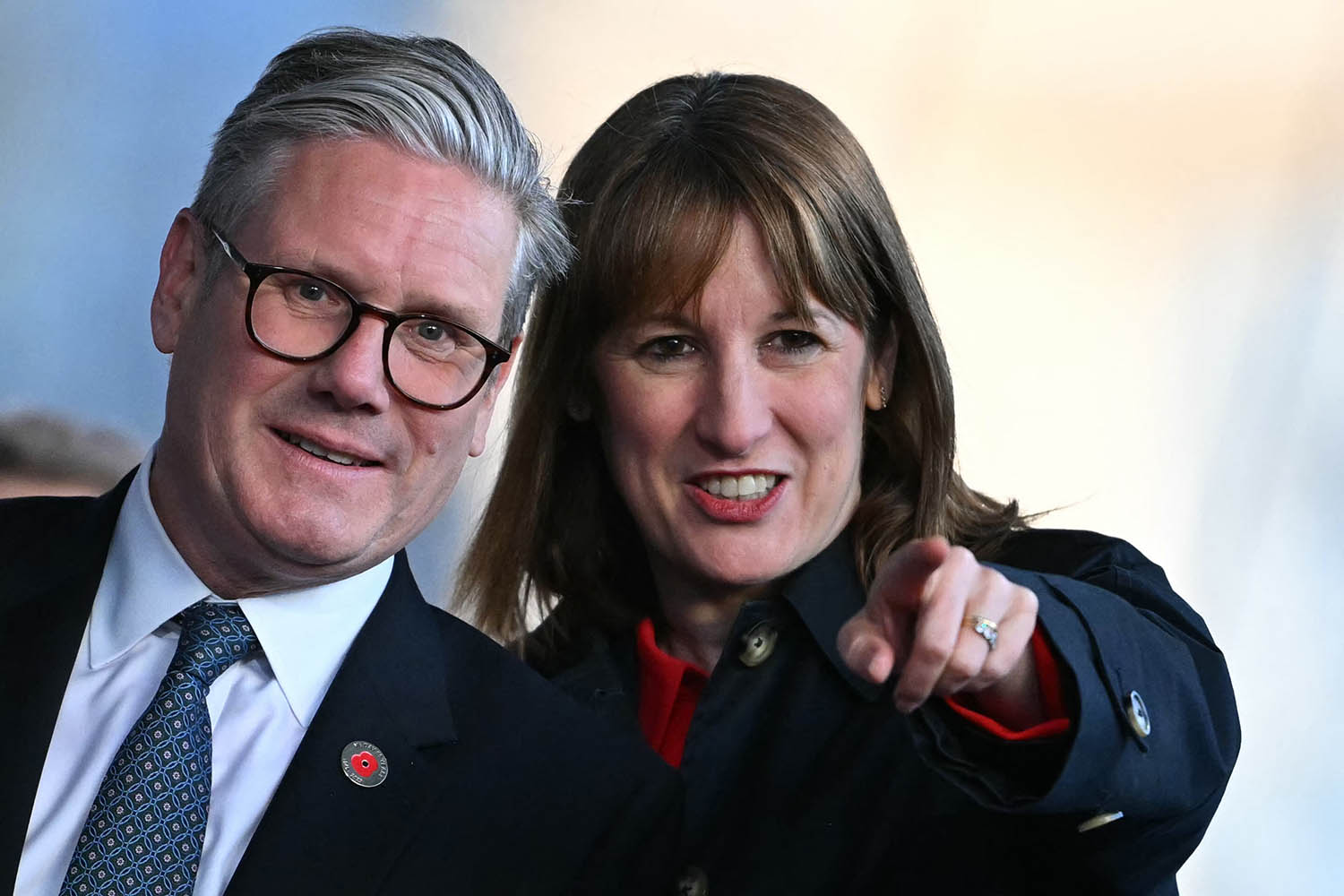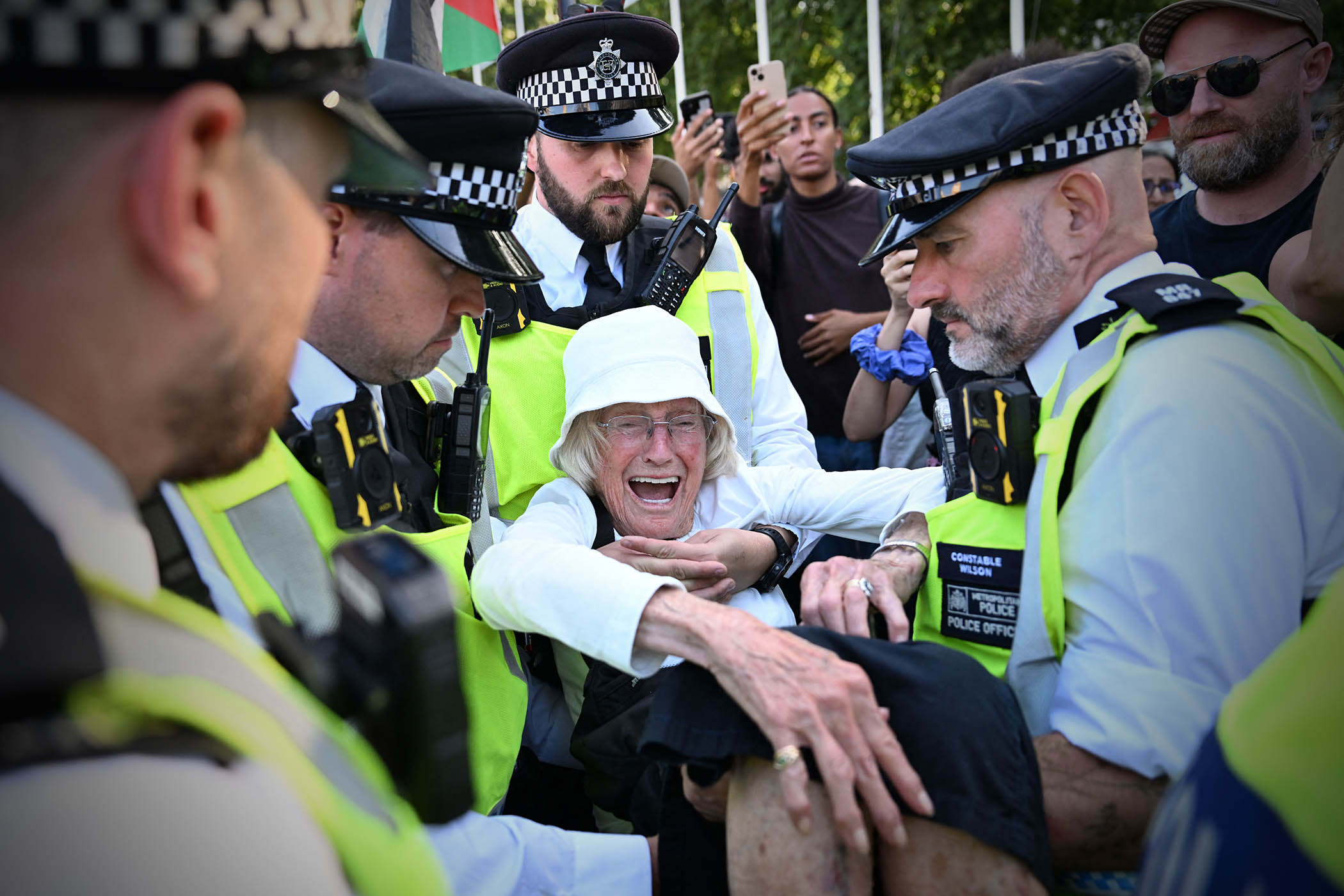When Labour MPs clamour for a “course correction”, you do not need the skills of GCHQ to decode what they mean. They want the government to spend more money. If they could cajole Rachel Reeves to rummage down the back of the Treasury’s sofa to find a bit extra for one particular cause, I know what it would be.
Licking the wounds of their lacerating encounters with disgruntled voters during the May Day elections, Sir Keir Starmer’s footsoldiers report that the most toxic source of discontent with the government is the decision to remove the winter fuel payment from 90% of pensioners. Voters who have not heard of anything else this government has done know about this cut and hate it. Forget the additional billions allocated to the NHS or the breakfast clubs for young schoolchildren or the renationalisation of the rail network. Forget anything potentially voter-pleasing that Sir Keir and his ministers have done since they arrived in office last July. For a lot of people, it is taking away the winter fuel payment that is this government’s most defining act. “Unless something is done, we’ll be chased about this on the doorstep all the way up to the next general election,” groans one Labour strategist. Nowhere was this cut trailed in the manifesto. That makes it a shredder of trust and totemic of wider aggravations with the government.
You can say – and with this argument I have some sympathy – that a universal payment of up to £300 regardless of means was a badly targeted Gordon Brown gimmick and ripe for reform. But the cut removes the payment not just from the multimillionaire pensioner who likes to brag that they use it to pay for their Christmas bubbly. It also hits much less affluent pensioners, and at a time when energy bills are inflated. That goes to fairness. You’ll struggle to find anyone who voted for a Labour government in the expectation that making already poor pensioners even less well off would be one of the first things it would do.
No policy, as even the most slavishly loyal Starmtroopers will acknowledge, has proved more radioactive with the electorate. Some go so far as to lament that it has become “Labour’s poll tax”, by which they don’t mean to compare it with the impost that triggered the peasants’ revolt of 1381, but with the disastrous charge that played a decisive role in the downfall of Margaret Thatcher in 1990 because she stubbornly refused to abandon it. All agree that it was rocket propellant fuelling the Reform surge on 1 May, in which Labour was defeated in two-thirds of the council seats it was defending, and lost one of its supposedly safest parliamentary seats in the Runcorn and Helmsby byelection. There’s not much else that unites Nigel Farage, Kemi Badenoch, Sir Ed Davey and Jeremy Corbyn, but opposition to this cut does. Rarely in the field of politics has so much electoral damage been wreaked for such a relatively meagre cash saving to the exchequer.
Most of the cabinet grasped months ago that the chancellor made an egregious blunder. The prime minister’s advisers privately express regrets that he did not wield a veto. A more alert and agile No 10 would have defused this already. A full restoration of the allowance would probably cost the exchequer roughly £1.5bn a year. That’s not nothing, but it is not all that much in the context of a government annual spend of more than £1 trillion. An uplift to the cutoff threshold would salve the pain inflicted on poorer pensioners. That would cost less than the rounding errors in the national accounts. Ms Reeves could announce it this week and might be rewarded with an uptick in her dire approval ratings. Sir Keir could present it not as a humiliating U-turn but as an empathetic government listening to voters and learning from mistakes.
It is clear that backing off would be politically smart, but it is also obvious that they won’t do that anytime soon. There’s growing expectation of a palliative tweak in the budget, but that event lies many months ahead, in the mists of the autumn. “I guess they’re scared of looking weak,” says one senior Labour MP. The Treasury is entering the final throes of its negotiations with the spending departments about their budgets. The chancellor has chosen “toughness” as her signature brand, and she doesn’t want to embolden demands for more money from cabinet colleagues by showing that she can be induced to cave to public pressure.
Then there’s the looming parliamentary crunch on the reductions to incapacity benefits. This has turned into a virility test of the power of the government to impose its will on mutinous backbenchers. The prime minister has a working majority of 165. That evaporates if 83 or more Labour MPs vote with the opposition to defeat the government. More than 100 are said to have signed a letter of protest to the chief whip. A few weeks ago, I would not have bet on the government losing the vote. Since the May elections, the maths looks dicier.
It is true that many of the government’s money problems are down to its inheritance. Ministers are not wrong when they say that Labour was thrown a fiscal hospital pass by the Conservatives. The national finances were in a much more parlous state than John Major’s bequest to Tony Blair in 1997. The public realm was in much more battered shape compared with the legacy Gordon Brown handed to David Cameron in 2010.
That combination has been the more poisonous because Sir Keir failed to prepare the public for what his government would face. He did warn, during the election campaign, that there would be “hard choices”, but was studiously vague about just how unappetising they might be. I don’t think this is because the prime minister is intrinsically fraudulent. It is more that he assumed that a Labour government would quickly restore economic growth, and that would make everything a lot easier than it has turned out to be. “We didn’t have out the big arguments about tax-and-spend before the election,” says one former cabinet minister. “We are now paying the price.”
Indeed they are. Of all the many challenges facing this government, that is the largest one to which they have yet to find an answer.
Newsletters
Choose the newsletters you want to receive
View more
For information about how The Observer protects your data, read our Privacy Policy
Photograph by Justin Tallis/ Pool/AFP



